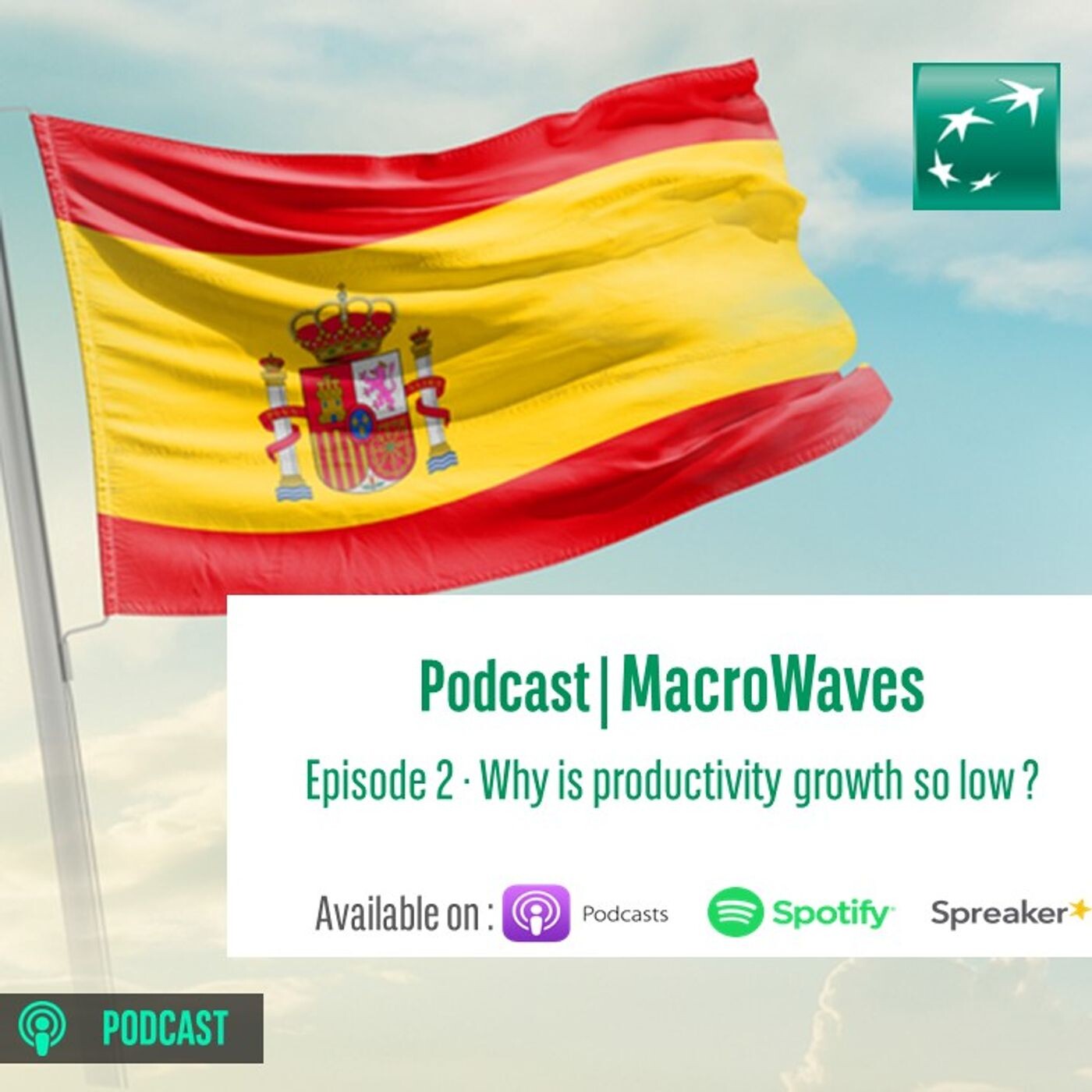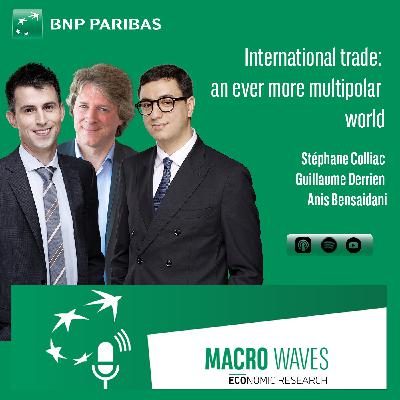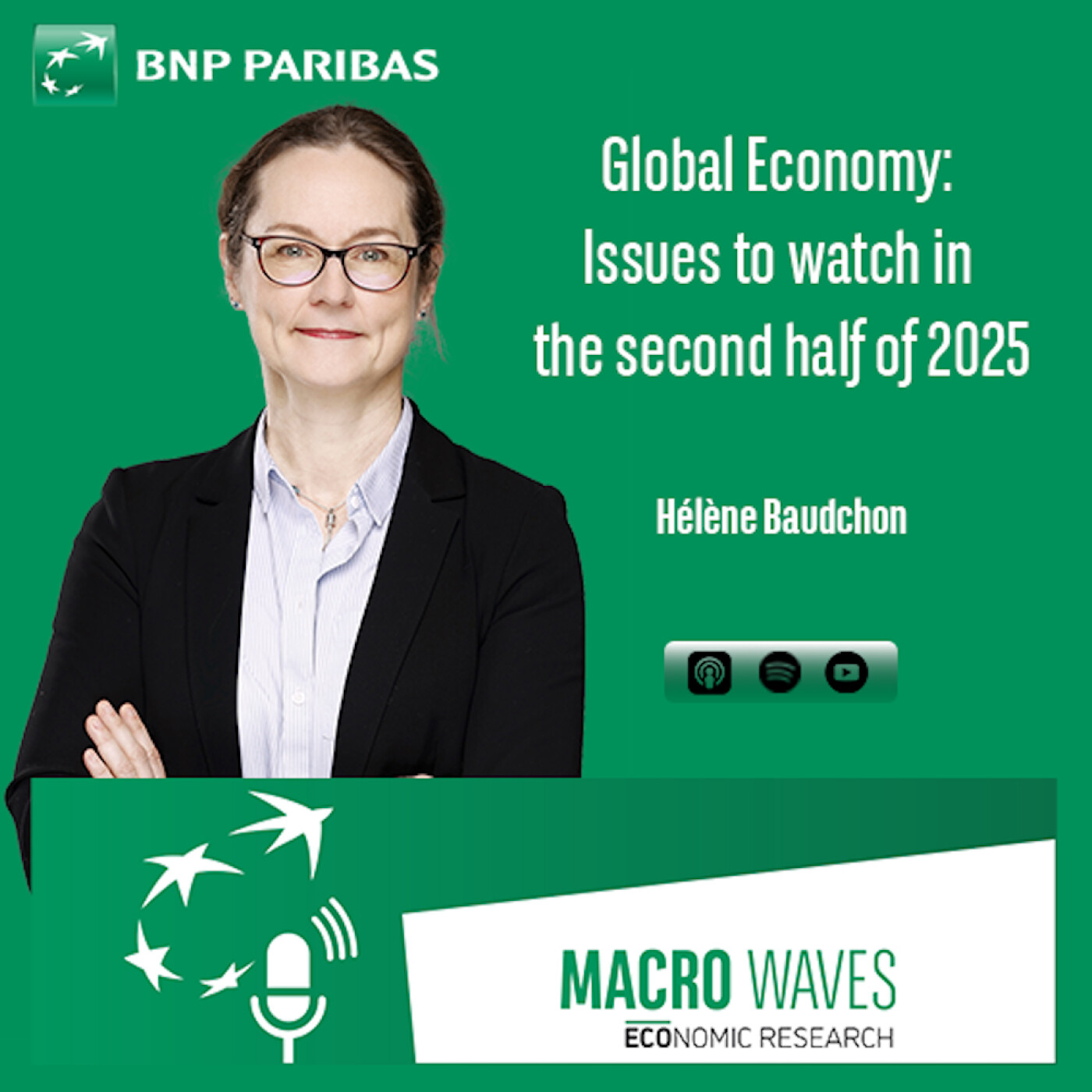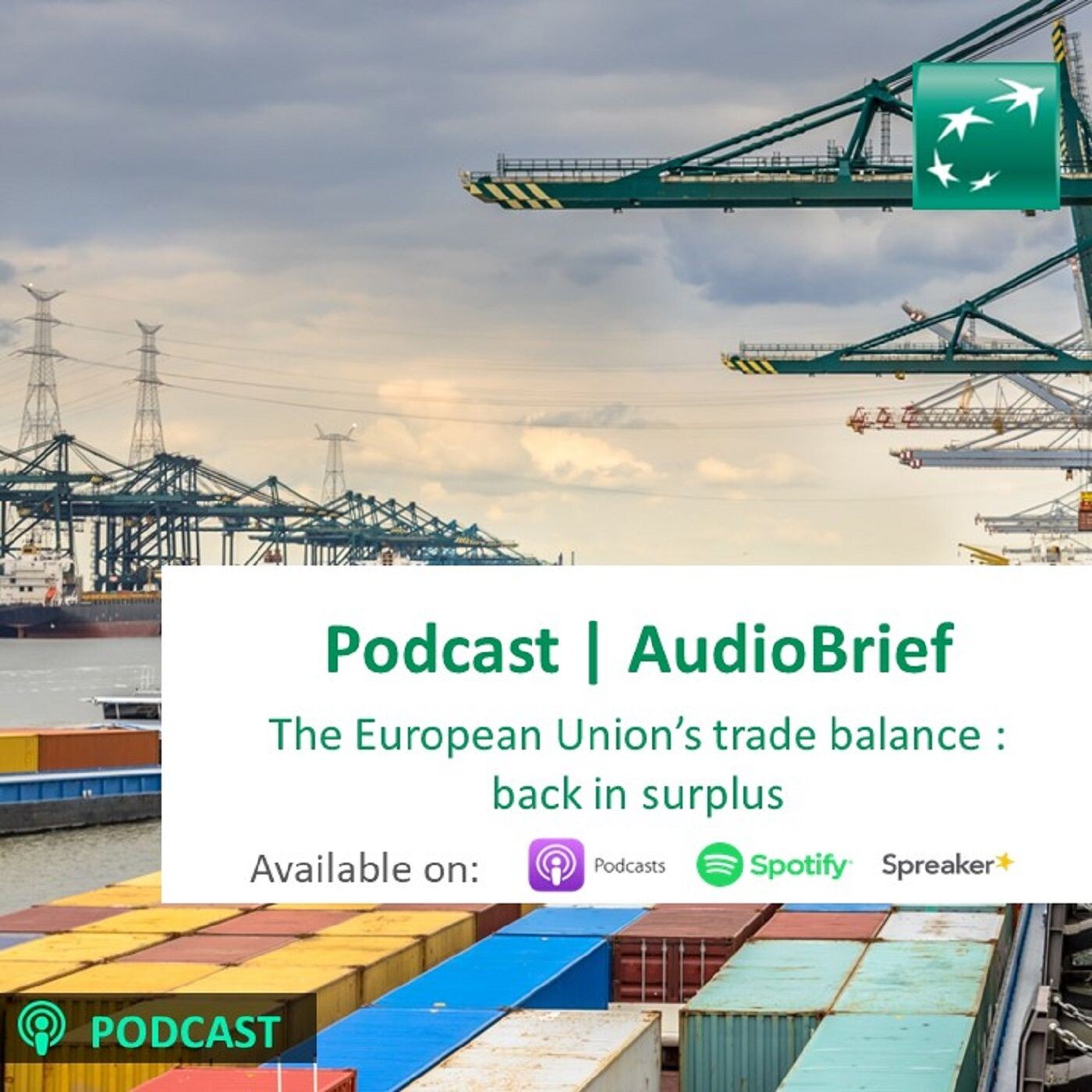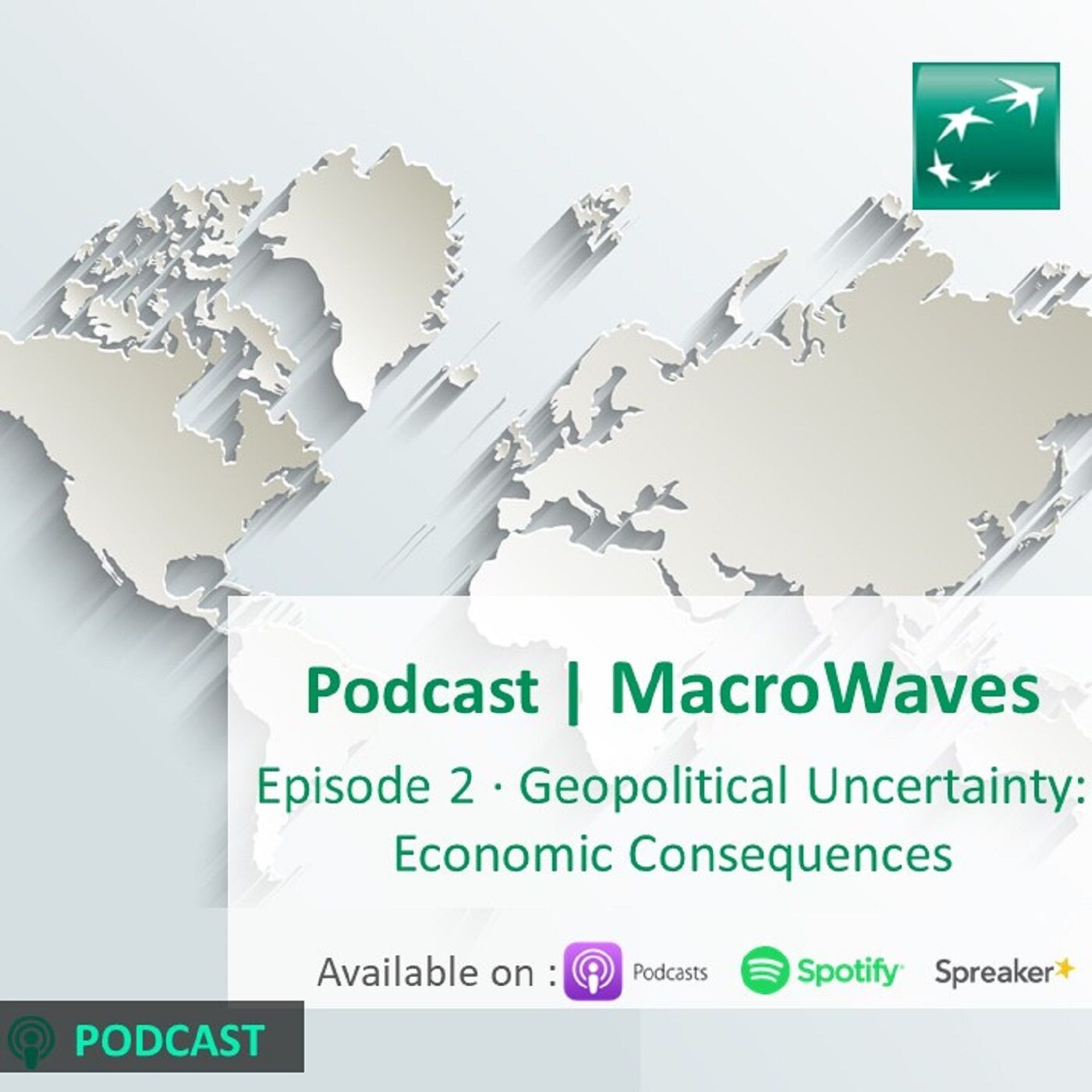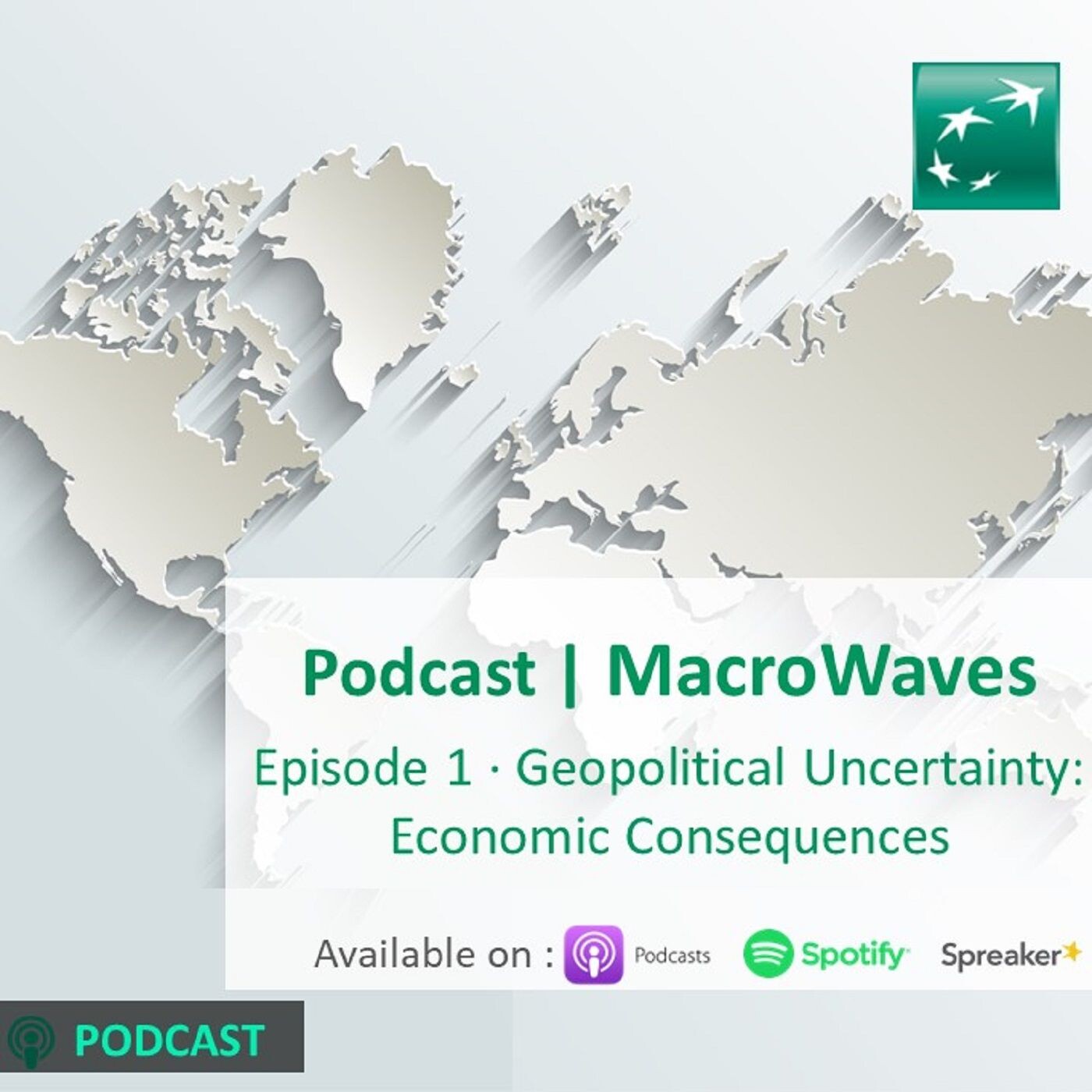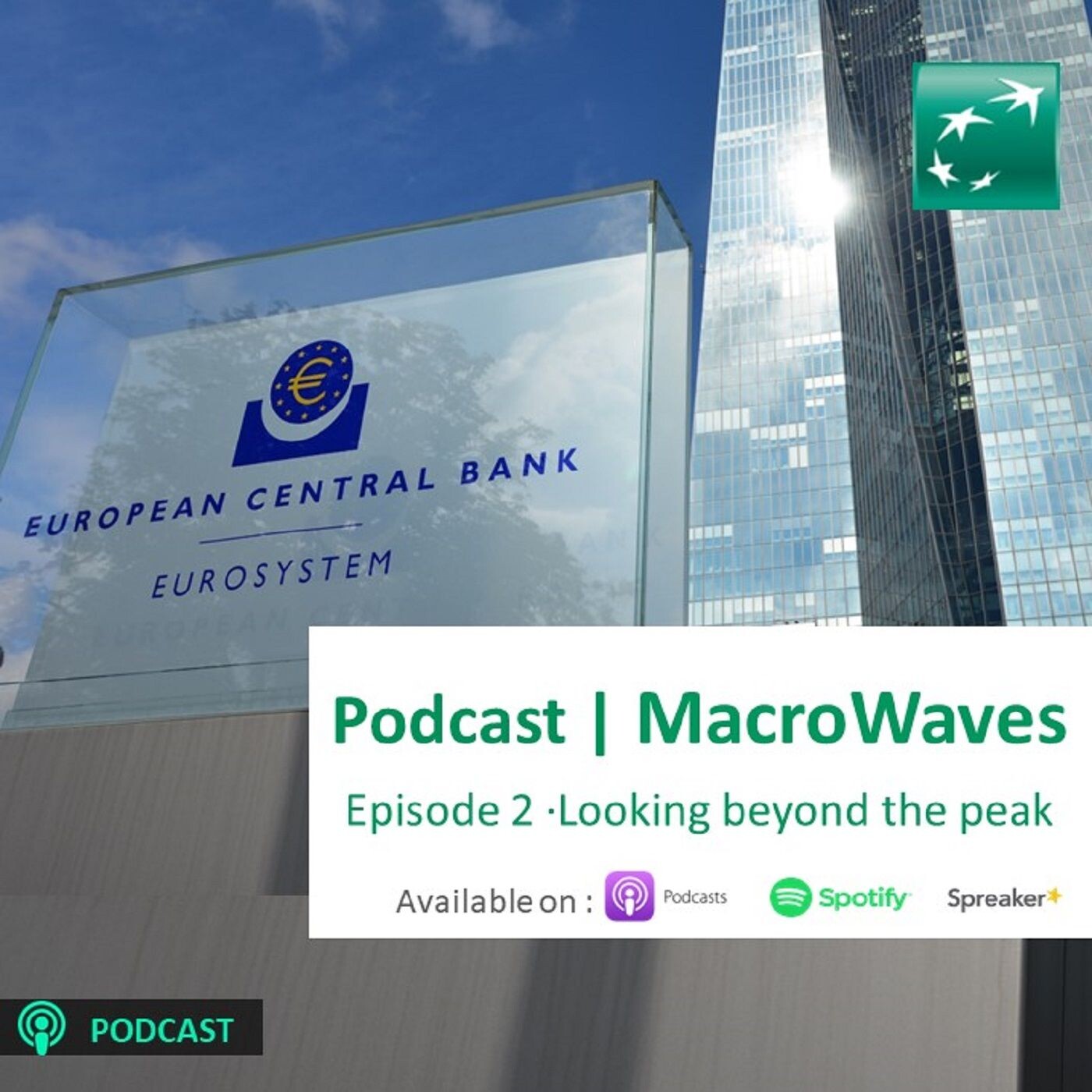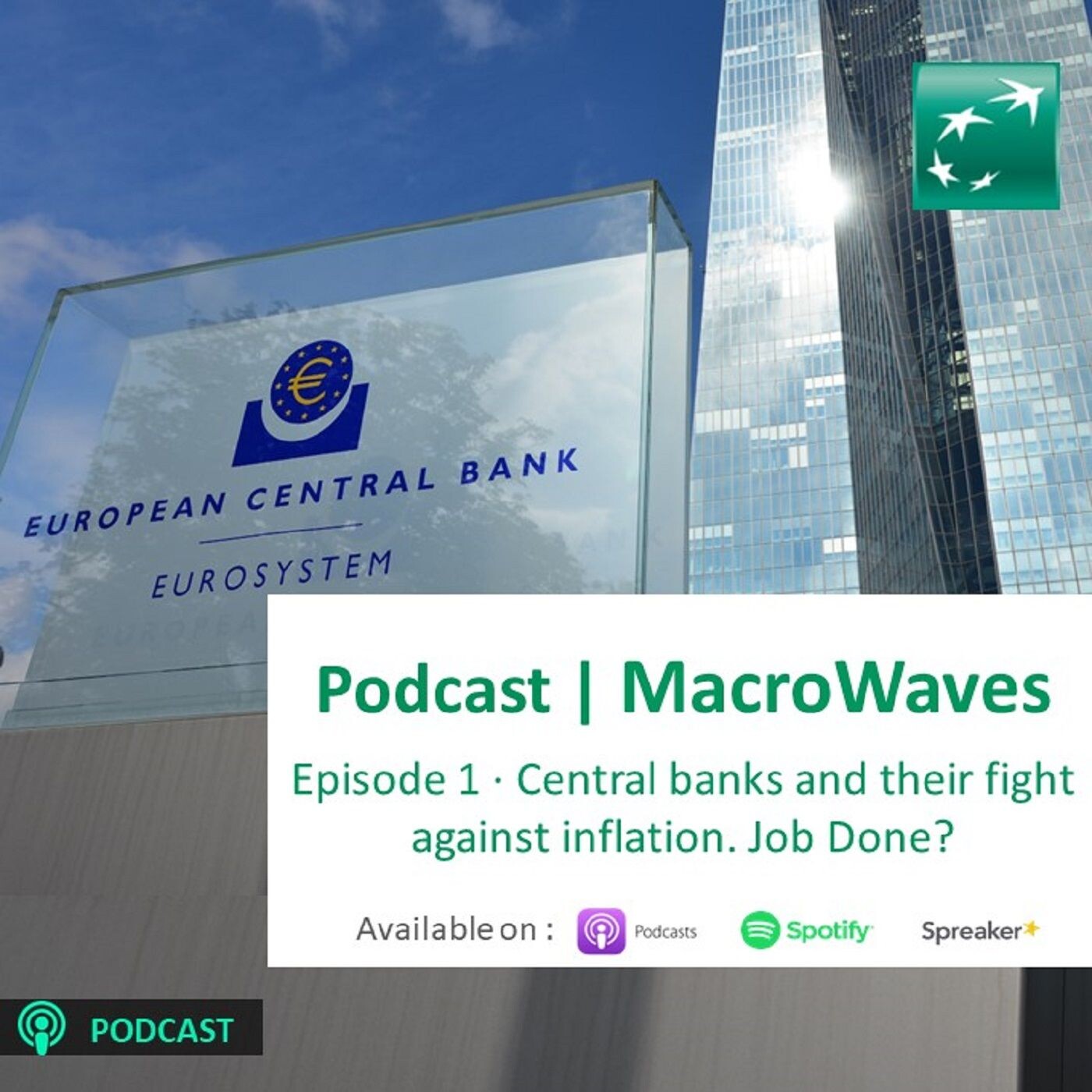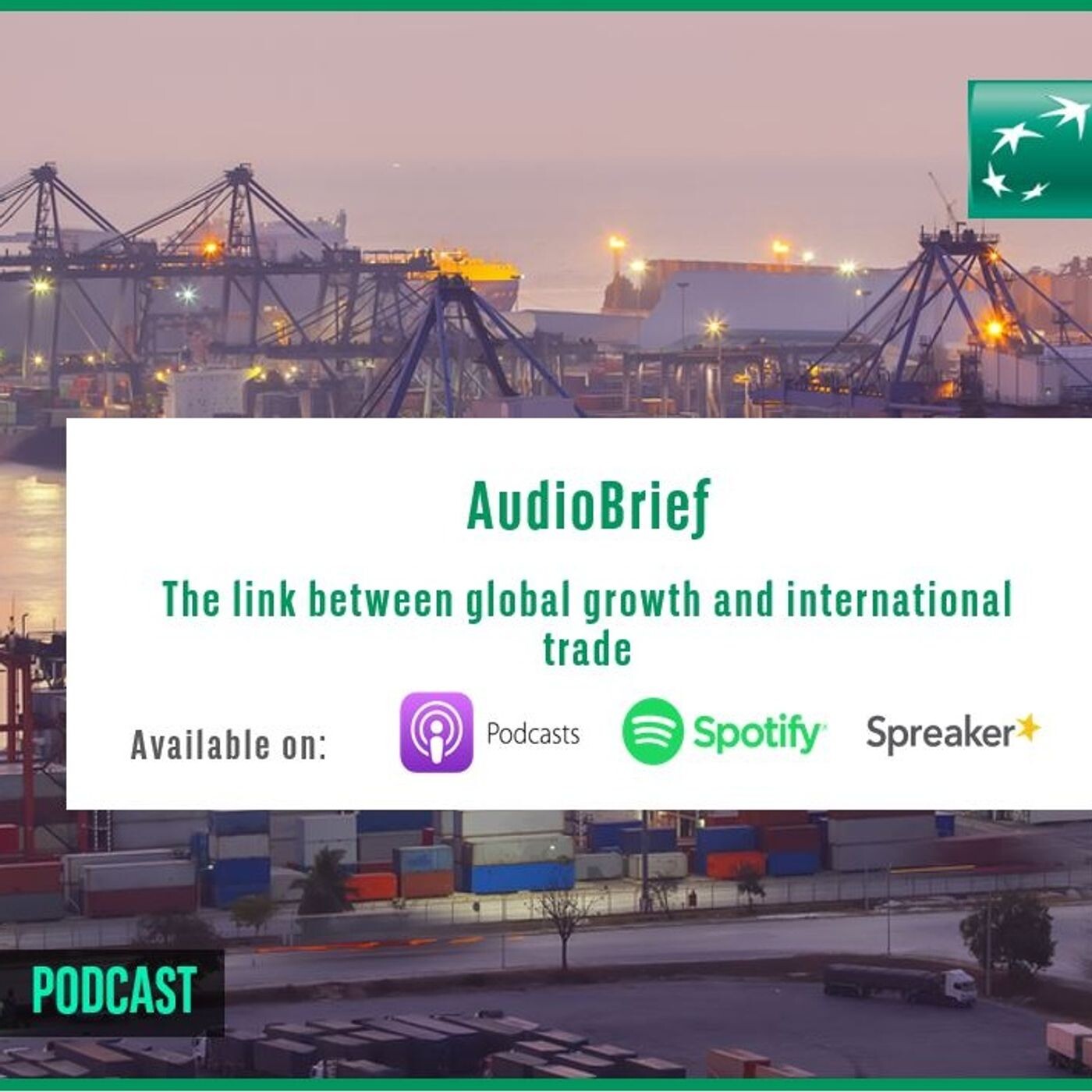Discover Macro Waves
Macro Waves

Macro Waves
Author: BNP Paribas Economic Research
Subscribed: 37Played: 365Subscribe
Share
© Copyright BNP Paribas Economic Research
Description
Stories about money and markets : Monthly talks from the Economic Research department of BNP Paribas.
Hosted on Ausha. See ausha.co/privacy-policy for more information.
63 Episodes
Reverse
Is stagflation back? In this series of podcasts, William De Vijlder, Group Chief Economist of BNP Paribas, discusses the issue of stagflation, a term that has been increasingly used in the media in recent months. Stagflation, a multi-year phenomenon combining rising unemployment and high inflation, brings us back to the dark days of the 1970s and 1980s, when inflation levels were unprecedented and mass unemployment began.Hosted on Ausha. See ausha.co/privacy-policy for more information.
The convergence of several factors of tension – the health crisis, the war in Ukraine, the tensions in supply chains – is leading us to speak more and more of stagflation. The term is a contraction of "stag" for stagnation in economic activity and "flation" for inflation. William De Vijlder, Chief economist of BNP Paribas, offers a two-part podcasts series on this worrying phenomenon.Hosted on Ausha. See ausha.co/privacy-policy for more information.
In this third and final episode of the series dedicated to labour productivity in Spain, signs of encouragement for a recovery in Spanish productivity are presented, in particular thanks to a national recovery plan (2021-2026) that is in line with the España 2050 strategy, which consists of raising R&D investment.Economic Research WebsiteHosted on Ausha. See ausha.co/privacy-policy for more information.
In this second episode of the series on labour productivity in Spain, Hélène Baudchon and Guillaume Derrien discuss the three main factors that explain Spain's low productivity.Economic Research WebsiteHosted on Ausha. See ausha.co/privacy-policy for more information.
In this series of three podcasts "Focus on Labour Productivity in Spain" Hélène Baudchon, Deputy Chief Economist and Head of the OECD team, BNP Paribas Economics Department and Guillaume Derrien, Senior Economist in the same team, discuss productivity as an endemic weakness of the Spanish model. This first episode reviews the main trends in the evolution of productivity in Spain compared to its European neighbours over the last 25 years.Economic Research WebsiteHosted on Ausha. See ausha.co/privacy-policy for more information.
Hello, everyone, and welcome to another episode of Macro Waves, the BNP Paribas Economic Research podcast. Today, we're looking at household consumption, which remains the main driver of growth in both the Eurozone and the United States. As we all know, household consumption suffered a major negative shock during the COVID-19 pandemic. Since then, growth has remained very moderate in the Eurozone, while it has accelerated sharply in the United States. After the pandemic, the inflationary crisis and contrasting economic policies of recent years, where do we stand on either side of the Atlantic?https://economic-research.bnpparibas.com/Home/en-USHosted on Ausha. See ausha.co/privacy-policy for more information.
In today’s discussion, we delve into the public finances of emerging economies in 2025, based on an exclusive analysis of our most recent EcoPerspectives issue focused on these economies. With robust but slowing growth, rising public debt and limited fiscal flexibility, what challenges and opportunities lie ahead for these countries?That's what we're going to explore with Hélène Drouot, an expert on Latin America and Lucas Plé, who specialises in sub-Saharan Africahttps://economic-research.bnpparibas.com/Home/en-USHosted on Ausha. See ausha.co/privacy-policy for more information.
https://economic-research.bnpparibas.com/Home/en-USSince Donald Trump's return to the White House in 2025, the United States has massively increased its tariffs. As a result, trade flows to the US have been disrupted, but has this affected the dynamics of global trade? And above all, are we heading towards a major restructuring of global trade?Fins out more here: EcoPerspectives — Advanced Economies | 3rd Quarter 2025– Economic Research – BNP ParibasHosted on Ausha. See ausha.co/privacy-policy for more information.
As we enter the second half of the year, and after a first half marked in particular on the economic front by the tariff war initiated by the United States, we suggest that we pause and look back for a moment. This will allow us to understand the dynamics that have shaped our economies over the last six months. It will also help us to identify to what extent and in what way they will impact the economic outlook for the second half of the year. What scenario should we expect?Hosted on Ausha. See ausha.co/privacy-policy for more information.
To highlight the publication of the second quarter issue of EcoPerspectives Emerging Economies, three members of the Emerging Economies team speak in ‘MacroWaves’: Christine Peltier, Cynthia Kalasopatan Antoine and Lucas Plé. This is an opportunity to take stock of the specific challenges facing countries.In this podcast, our economists review the consequences of US tariff increases on global growth, the dynamics of international trade reconfiguration, and the reorganisation of value chains. We will analyse the effects of these upheavals on emerging countries.Hosted on Ausha. See ausha.co/privacy-policy for more information.
In this new Podcast, we take a look at the short- to medium-term economic outlook for the major advanced economies, analysing the impact of trade tensions, the room for manoeuvre available and the expected economic dynamics.#growth #inflation #monetarypolicy #us #eurozone #ukReading advice :Équipe Économies Avancées | EcoPerspectives — Économies Avancées | 2ème trimestre 2025 – Etudes Economiques – BNP ParibasSound credit :Extact from the speech of Pierre-Olivier Gourinchas, chief economist at the IMF, during the IMF World Economic Outlook' press briefing, April 2025.# Press Briefing: World Economic Outlook, April 2025 - YouTubeExtract from Jérome Powell's speech at the May 7, 2025 FOMC press conference.# FOMC Press Conference May 7, 2025Extact from the speech by Christine Lagarde, Président of the ECB, at the announcement of the ECB's latest monetary policy decisions, April 17, 2025.# President Lagarde presents the latest monetary policy decisions – 17 April 2025Hosted on Ausha. See ausha.co/privacy-policy for more information.
In this Audiobrief, Stéphane Colliac discusses selfemployment in France. It has been growing again for almost 20 years, particularly in household services, but also in business services. In France, which has created nearly 420000 jobs a year over the last 5 years, self-employment has represented almost one job creation out of 5.Economic Research WebsiteHosted on Ausha. See ausha.co/privacy-policy for more information.
In this Audiobrief, Guillaume Derrien discusses recent evolution of the European Union's trade balance. The latter moved back to a surplus in 2023. Despite China’s ramping up to higher value-added sectors, the EU trade surplus in traditionally buoyant industries (pharmaceuticals, automotive) remains at historically-high levels.Economic Research WebsiteHosted on Ausha. See ausha.co/privacy-policy for more information.
In this audiobrief, Stéphane Colliac describes France’s trade deficit for 2023 main drivers. In addition to a deficit linked to imports of hydrocarbons and a structural deficit reflecting the country’s de-industrialisation, it is also driven by France’s investment in the needs arising from the ecological and digital transition and the electrification of the car industry. Economic Research WebsiteHosted on Ausha. See ausha.co/privacy-policy for more information.
In the second podcast on geopolitical uncertainty and its economic consequences, Daniel Morris and William De Vijlder look more closely at the impact of geopolitical uncertainty on firms, households and financial markets.Economic Research WebsiteHosted on Ausha. See ausha.co/privacy-policy for more information.
In two podcasts Daniel Morris, Chief Market Strategist of BNP Paribas Asset Management discusses with William De Vijlder, Group Chief Economist of BNP Paribas the impact of geopolitical uncertainty on the economy. In this first podcast, they look at economic and geopolitical uncertainty, why it matters and how it can be measured.Clic here to consult the graphicHosted on Ausha. See ausha.co/privacy-policy for more information.
In the second and last episode of the series on central banks and their fight against inflation, Andrew Craig and William de Vijlder are looking beyond the peak and discuss what will come next. Among the questions are: how long will central banks hold rates at these levels? How long will they plateau at these current levels? what come after that?Economic Research WebsiteHosted on Ausha. See ausha.co/privacy-policy for more information.
In this series of two podcasts Andrew Craig, co-head of the Investments Insight Center at BNP Paribas Asset Management, interviewed William de Vijlder, group chief economist of the Economic Research of BNP Paribas regarding the central banks policies to fight inflation. Among the questions answered in the first episode are:Are we at the peak or can we expect further rates hikes? Is the inflation going to declines? at which pace?Economic Research WebsiteHosted on Ausha. See ausha.co/privacy-policy for more information.
In this new AudioBrief, Guillaume Derrien, economist within the OECD team, discusses the close relationship between global growth and the evolution of international trade.Economic Research's website, BNP Paribas Hosted on Ausha. See ausha.co/privacy-policy for more information.
In this final episode, William De Vijlder analyses the responses of European governments tothe crisis generated by the pandemic. How to stimulate and maintain economic growthwhilst at the same time developing an environmental policy that meets the challenges ofclimate change? The “Next Generation EU” plan recently launched by the EuropeanCommission is discussed from this viewpoint.Hosted on Ausha. See ausha.co/privacy-policy for more information.





